Bloomberg New Economy Forum 2019
Special Event
Enodo Economics Chief Economist Diana Choyleva took part in Bloomberg New Economy Forum Session: Is the World Really Flat?
Description
Until a few years ago, globalization seemed to be an unstoppable force. No country would be left behind in a borderless global economy connected by fibre optic cables. Today, this dream of common prosperity has been shattered by the rise of populism and protectionism. The world is no longer flat. From the U.S. to Italy, a tide of resentment at globalization has redrawn the political map. Support for free trade and open borders has fractured, and with it support for mainstream politicians. Confidence in the traditional tools for maintaining growth is faltering. Protectionism threatens to hammer trade flows and slow the technology catch-up of developing economies. This year, trade growth will lag the overall expansion of the global economy. Populist leaders pushing inward-looking nationalist policies, now control some 43% of global GDP, according to Bloomberg Economics. What does all this mean for poorer countries in Africa and other new economies that are hoping to climb the ladder to prosperity through manufacturing?
Diana Choyleva’s speech

”Populism and protectionism are on the march. We should be concerned. Together they threaten the progress we’ve made towards common prosperity in the last decades. But why is this happening? Why are large swathes of the world population feeling unhappy? Feeling disenfranchised? Feeling left behind? In absolute terms it doesn’t make sense.
Thirty years ago, thirty five percent of us lived in extreme poverty. Now that figure is just ten percent. Thirty years ago, a quarter of us had no access to electricity. Now it is just fifteen percent. Thirty years ago, seventy five percent of young women completed primary education. Now it is over ninety percent. And yet it appears we are not happy.
The world happiness report shows that our happiness is declining. Especially in the most populous countries. At the same time happiness inequality is increasing. It is driven less by inequality between countries. More by inequality within countries
Populists are taking advantage of this increasing unhappiness and unhappiness inequality. They reject the development model that gave us all that we have achieved in the last thirty years. They promise people what they crave. But they promise without a plan on how to deliver on that promise. These politicians have been adopting more and more populist arguments. They frame politics as a battle between the will of the people and corrupt, self-serving elites.
A recent study of speeches by almost 140 world leaders in 40 countries reveals a surge in populist rhetoric. At the same time there has been a rise in economic nationalism across developed and developing economies.
A study of the policy platforms of the largest political parties in the G-20 reveals growing emphasis on policies that stress national sovereignty and reject multilateralism.
And here is the key. It appears human nature condemns us to look at our achievements and wellbeing in comparative rather than absolute terms. If we feel left behind, we blame others rather than ourselves. For the populist national politician this means blame the foreigner. This isn’t to say that the world today doesn’t face many intrinsic challenges. Climate change being the biggest.
This isn’t to say that globalization doesn’t have faults. This isn’t to say that the current prevalent economic models and how they have been combined globally don’t need improvement. But it does mean that the problems that face us are not the problems of failure but the problems of success. We must reframe our discussions in this vein because we are in real danger of throwing the baby out with the bathwater. It would be dangerous to reject completely the ideas that got us to where we are today. It would be dangerous not to guard against our biases in the perception of success and failure. It would be dangerous not to attempt to understand completely how we got here. We can only address the challenges we face by building on the success of the past thirty years, not by rejecting completely the ideas that got us here.”
Discussion
Diana’s speech was followed by a discussion on the topic with Gary Cohn; Fred Hu, founder and chairman of Primavera Capital Group, Wang Huiyao, President of the Center for China and Globalization (CCG) and Xu Niansha, chairman of China Poly Group, executive director of China Chamber of International Commerce and president of China Arts and Crafts Association. Zhu Min, chairman of the Institute of Financial Research at Tsinghua University, moderated.
Watch the discussion here.

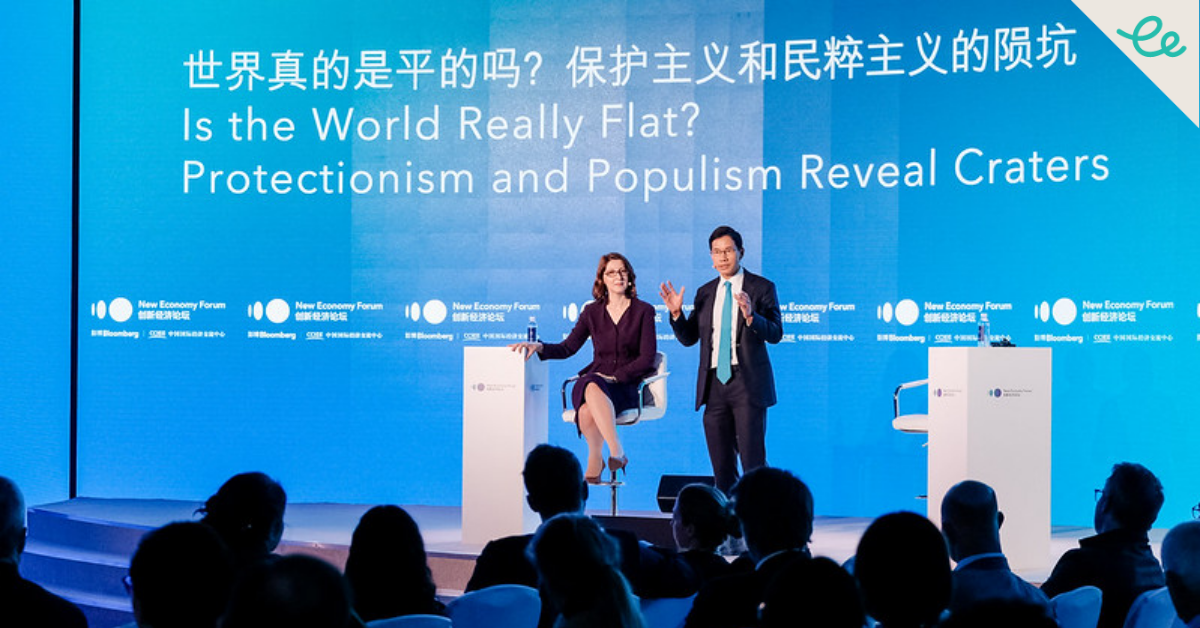
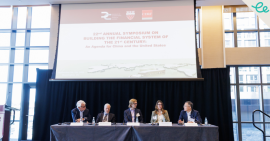

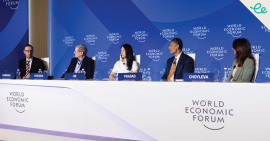



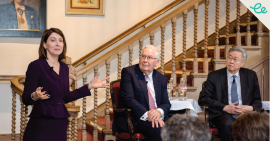
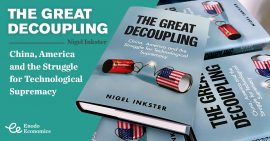
Comments are closed.